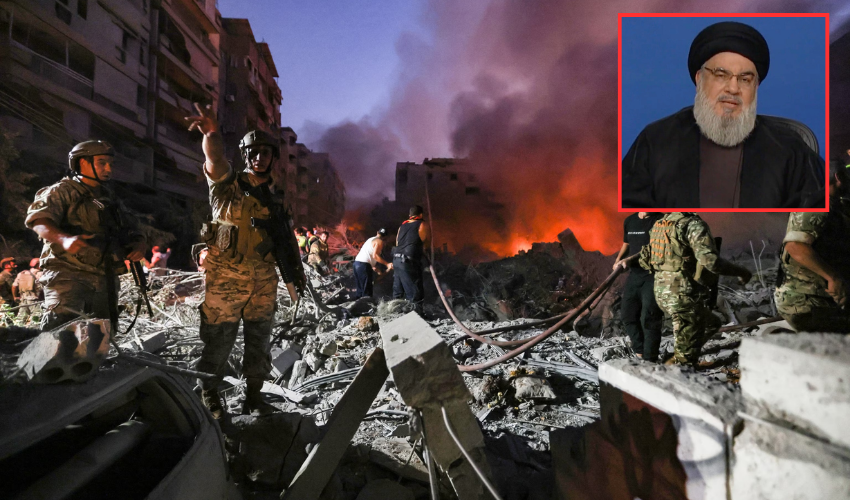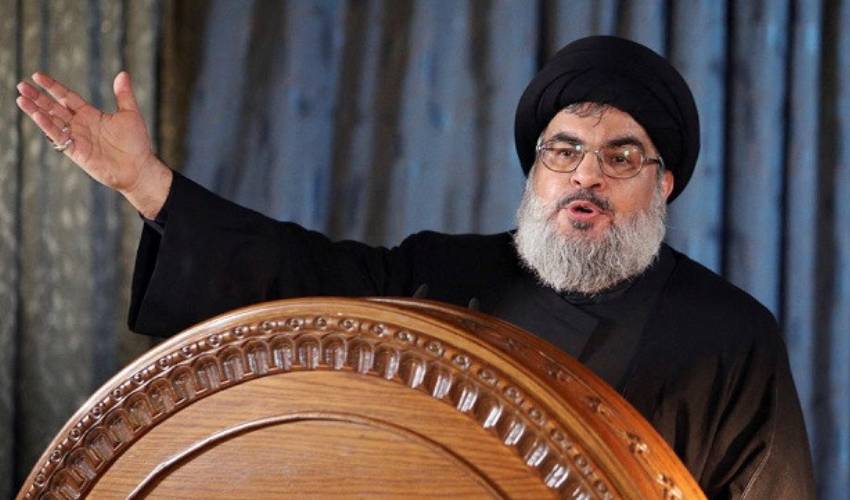Lebanon’s Hezbollah will hold a mass funeral for its former leader Hassan Nasrallah on Sunday, - nearly five months after he wasmartyred in an Israeli airstrike.
The funeral is set to be a show of political strength for the group, which has been significantly weakened by last year’s war.
Nasrallah was killed on September 27 in an Israeli airstrike targeting a bunker in Beirut’s southern suburbs, where he was meeting commanders. His death marked a severe setback for Hezbollah in the early phase of Israel’s military campaign, which has inflicted heavy losses on the Iran-backed group.
Symbol of resistance
Nasrallah, revered by Hezbollah supporters, led the group through decades of conflict with Israel, overseeing its transformation into a formidable military force. Under his leadership, Hezbollah expanded its regional influence, making him one of the most prominent Arab figures in recent history.
His funeral will take place in Beirut’s southern suburbs, a Hezbollah stronghold, and is expected to draw hundreds of thousands of supporters. The group will also honour Hashem Safieddine, who briefly took over as Hezbollah’s leader following Nasrallah’s death before he was also killed in an Israeli strike. Safieddine will be buried separately in the south on Monday.

Mohanad Hage Ali of the Carnegie Middle East Center said the funeral was crucial for Hezbollah’s future standing in Lebanon. “A massive funeral with hundreds of thousands in attendance is meant to send a message that Hezbollah remains Lebanon’s dominant Shi’ite force,” he said.
Weakened political influence
The war has taken a heavy toll on Hezbollah, with thousands of its fighters killed and widespread destruction in areas where the group draws its support. The impact has been compounded by the loss of Syrian President Bashar al-Assad as an ally, which has disrupted Hezbollah’s supply routes to Iran.
Politically, Hezbollah has struggled to assert its influence in Lebanon. The group has been unable to dictate the formation of a new government, and references legitimising its armed status were omitted from the latest cabinet’s policy statement.
Sheikh Sadeq al-Nabulsi, a cleric close to Hezbollah, said the funeral would serve as a message that the group remains a key player. “This will be a battle to prove Hezbollah’s existence,” he stated.
Regional delegations expected
The ceremony will be held at Lebanon’s largest sports venue, Camille Chamoun Sports City Stadium, on the outskirts of Beirut’s southern suburbs. Nasrallah will then be buried at a dedicated site nearby.
Iranian Foreign Minister Abbas Araqchi will attend the funeral, alongside delegations from Iraq and Yemen. Iraq’s government has arranged additional flights to Beirut to accommodate the influx of supporters wishing to attend.
Nasrallah’s death was a major blow to Iran, which founded Hezbollah in 1982 through its Islamic Revolutionary Guard Corps. His loss has also affected allied Shi’ite militias across the region, who regarded him as a key figure in their broader geopolitical struggle.
A delayed farewell
After his death, Nasrallah was initially buried beside his son, Hadi, who was killed fighting for Hezbollah in 1997. His official funeral was postponed until Israeli forces began withdrawing from southern Lebanon under the terms of a U.S.-brokered ceasefire.
Although Israel has pulled back from most areas, its troops continue to occupy five hilltop positions that Hezbollah had long sought to reclaim before Israel’s withdrawal in 2000.
The latest conflict escalated when Hezbollah launched attacks on October 8, 2023, in support of Hamas during the Gaza war. The confrontation has further strained Lebanon’s fragile political and security landscape.


























